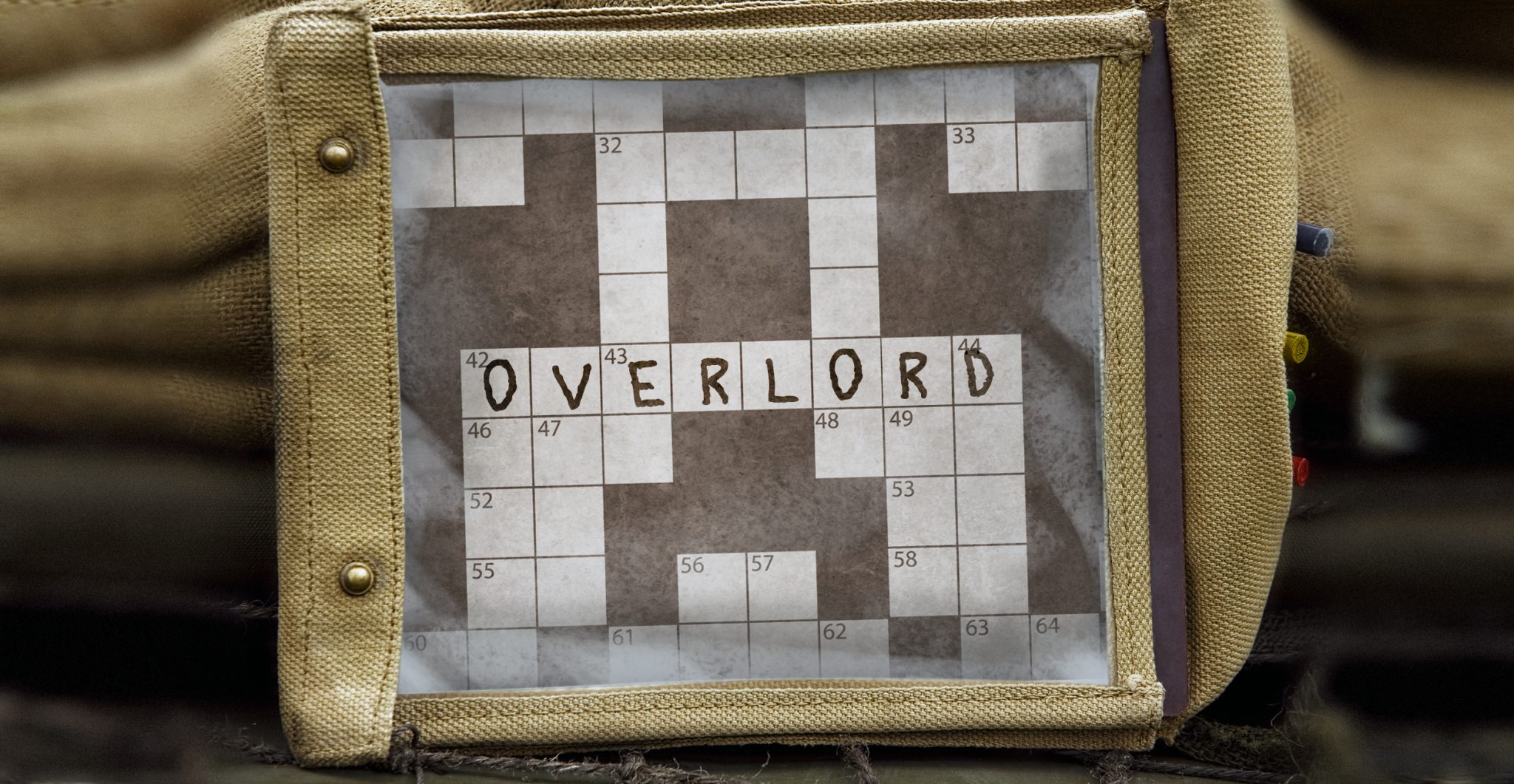The third crossword that appeared on May 27, 1944 included the word “Overlord,” the codename for the entire D-Day operation.
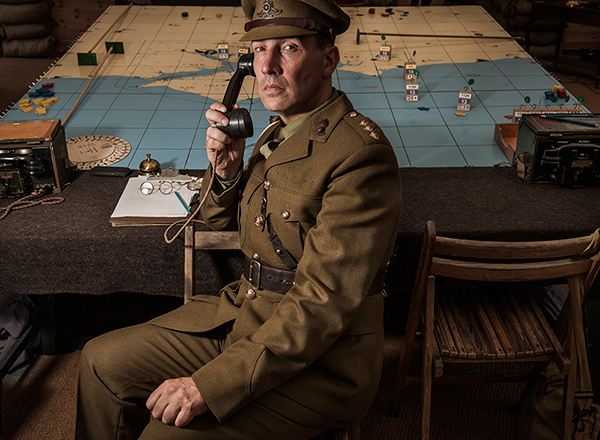
There are moments in history when the course of events meets coincidence. On most occasions, History and Coincidence would just pass by each other, but there are times when coincidence made a change in the course of history.
In spring 1944, a series of crosswords published in British Daily Telegraph newspapers raised the suspicion of men at MI5, the British Military Counterintelligence. Were the crosswords just another encounter of history and coincidence, or were they the work of a foreign agent?
According to Merriam-Webster, “coincidence” is defined as the occurrence of events that happen at the same time by accident but seem to have some connection. Every coincidence, therefore, must have an explanation. MI5 was determined to find if there was one with the crosswords that puzzled the whole Army.

Shhh, the enemy is listening!
World War II was, among everything else, a war of espionage. In a state of total war, every piece of information was important. Spy networks were a valuable war machine as much as tanks and airplanes were.
Spies’ ears were everywhere. They were listening in parks, in pubs, on railway stations, everywhere where there might be some chatty fellow. It was a danger of which everyone was aware. The pledge of silence was established. Loose lips might sink ships! Furtive Fritz is always listening! Posters warned everyone to keep their mouths shut.
The Dieppe incident
It was, therefore, a huge surprise when on August 18, 1942 the word “Dieppe” appeared in the Daily Telegraph crossword. Only a day after, the Allies launched a raid on the French port of Dieppe.
It ended in complete disaster with almost 60 percent of the Allied soldiers killed, wounded or captured. German forces welcomed Canadian soldiers, British commandos, and American rangers with a strong and a well prepared defense. It was as if the Germans knew the Allies were coming.
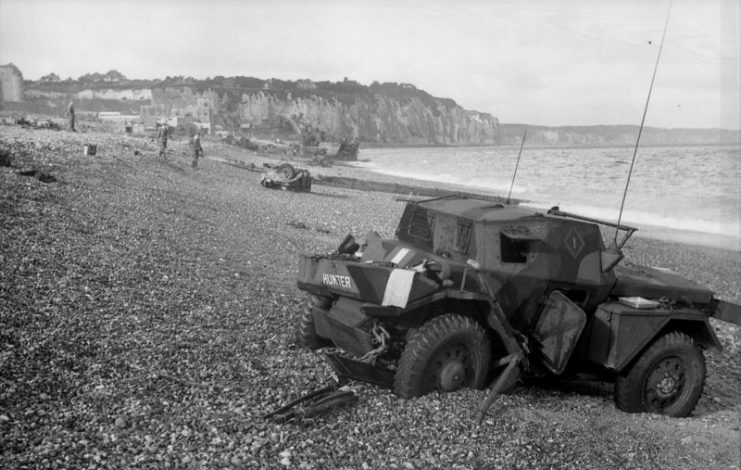
The Daily Telegraph crossword was put on top of the list of suspects for delivering the information to the enemy. The war office sent Lord Tweedsmuir of the Canadian Hastings and Prince Edward Regiment to investigate the case.
As it turned out, it was only an accident. A simple, unpleasant coincidence. The crossword appeared only a day before the assault. If it had been the work of an enemy agent, it would have appeared much earlier in order to fully prepare the Germans for defense.
Operation Overlord in danger
The whole thing ended by putting the incident aside. It was a stupid coincidence that deserved no attention. That is, not until it was repeated in 1944. This time, however, the stakes were much higher. An entire operation of invading the European continent was put in danger.
Keeping Operation Overlord a secret was of the utmost importance to the Allies. Even though the Germans were aware of Allied plans for an invasion, they knew nothing of the place or date of invasion. The Allies for their part were doing their best to keep them in the dark.
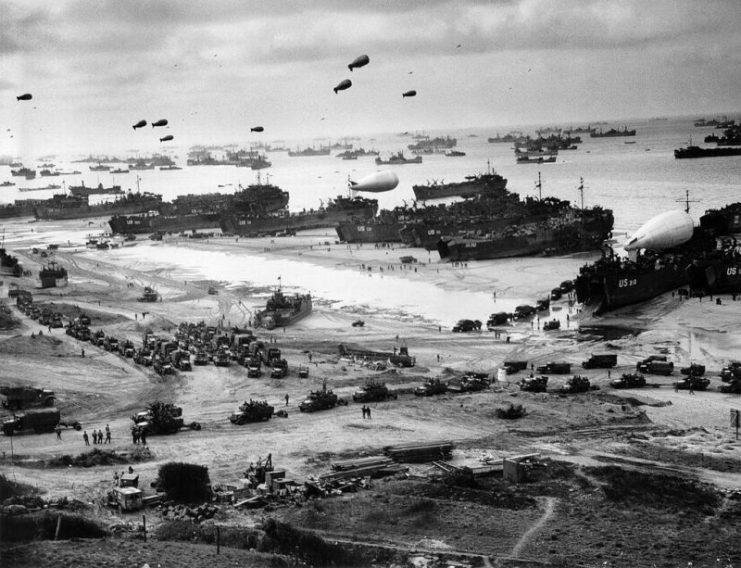
All of a sudden, a leak appeared. It was a Daily Telegraph crossword once again.
The first suspicious crossword appeared on May 2, 1944. The clue for 17 across was: “One of the U.S.” The four letter word was “Utah.” It was also the code name for a beach assigned to the 4th Infantry Division of the U.S. Army.
https://youtu.be/3coQ8Px2H8A
On May 22, a new one appeared. The clue was “the Red Indian on the Missouri” for 3 down. The solution? Omaha! Another codename, for the beach assigned to the 1st Infantry Division of the U.S. Army.
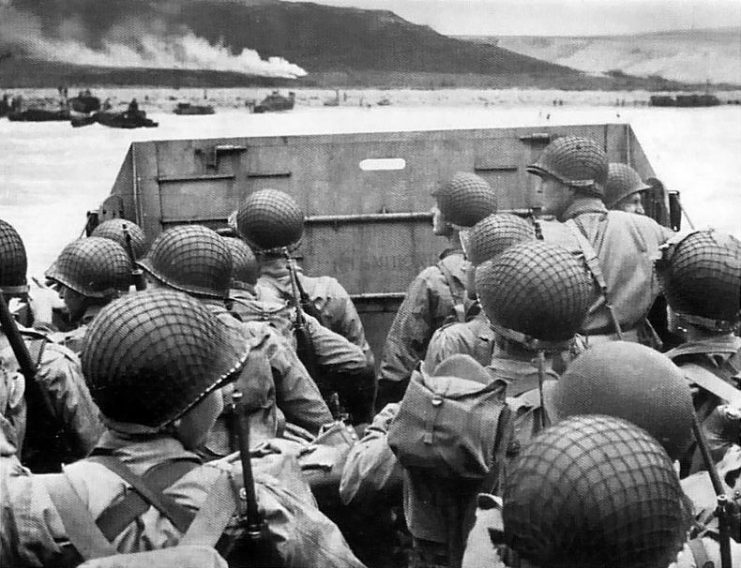
The third crossword that appeared on May 27, 1944 included the word “Overlord,” the codename for the entire D-Day operation. The clue for the word was: “(common)… but some bigwig like this has stolen some of it at times.”
At that point an alarm was sounded at MI5 headquarters in London.
The incidents continued. On May 30, 1944 clue for 11 across was: “This bush is a center of nursery revolutions.” The word they were looking for was “Mulberry.” That was the code word for the portable harbors that were used during the invasion.
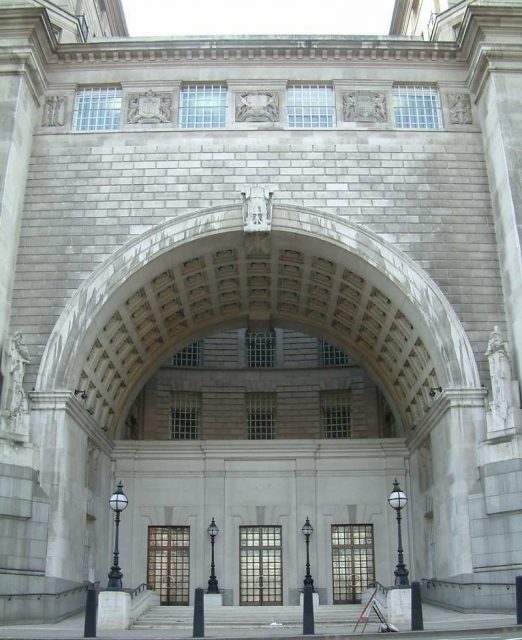
The last one appeared on June 1, 1944, just five days before D-Day. It was 15 down. The clue? “Britannia and he hold to the same thing.” The solution? Neptune. A codename for the landing operations on D-Day.
A school principal was to blame
MI5 agents rushed to visit the Daily Telegraph editor’s office to look for the author of the troublesome crosswords. It was Leonard Dawe, a 54 year old principal of the Strand School. Originally part of King’s College, Strand School was moved from London to Effingham, Surrey when the Blitz started. Crosswords were Dawe’s passion, and he had been creating them since 1925.
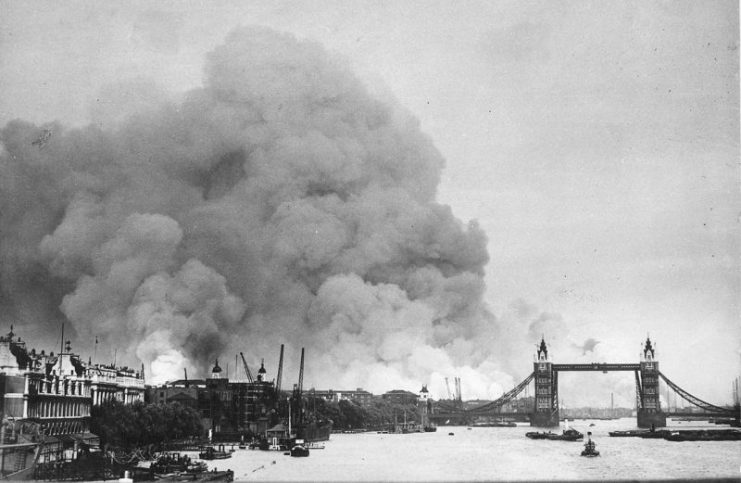
There was no words to describe his astonishment when two MI5 agents appeared at his doorstep. For several days they held him in custody and interrogated him, looking for the answer as to why Overlord-related codenames appeared in his crosswords. After a thorough investigation, the agents concluded that Leonard Dawe was nowhere near a German spy and that the whole thing was once again a plain coincidence.
In a 1958 BBC television interview, Dawe described the event: “They turned me inside out. Then they went to Bury St. Edmunds where my senior colleague Melville Jones [the Telegraph‘s other crossword compiler] was living. They put him through the grill as well. But in the end they eventually decided not to shoot us after all. Had D-Day failed, I suppose they might have changed their minds.”
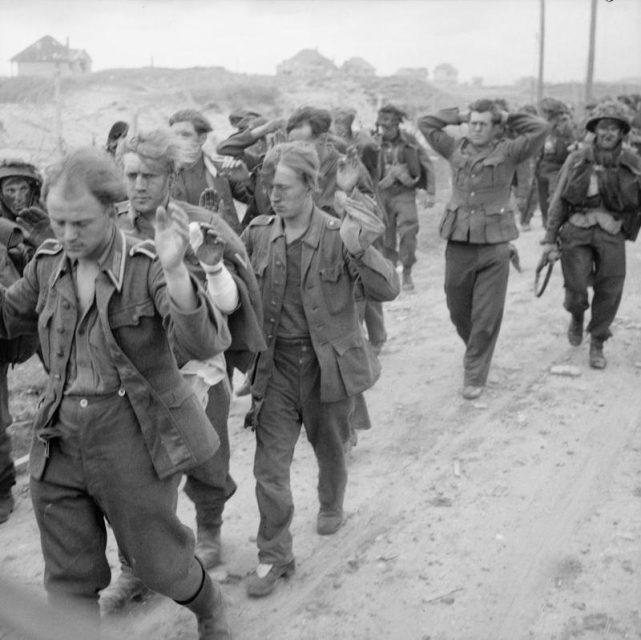
The preparations for the invasion continued and as a precaution Daily Telegraph suspended the crosswords.
Coincidence or Loose Lips
In 1984, the United Kingdom was celebrating the 40th anniversary of D-Day. On the occasion, the Daily Telegraph decided to tell the story of how their crosswords raised an alarm at MI5. The article came into the hands of Ronald French, who at the time was student of the Strand School. After reading the story, French decided to come clean and to reveal the truth about the incident.
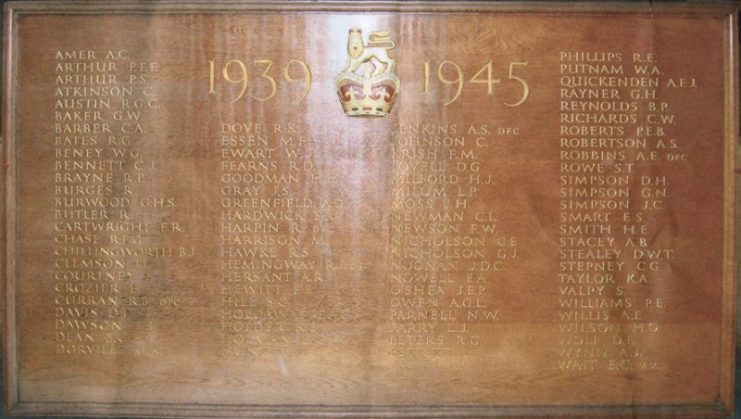
What principal Dawe probably failed to tell agents back in 1944 was that occasionally he would invite his students to fill out the crossword form with words. He would then create the clues for them. One of these boys was Ronald French. It was he who wrote down the words Utah, Omaha, Overlord, Mulberry and Neptune. The coincidence was how and where he heard these words.
French explained that in the vicinity of Effingham was a military camp where American and Canadian soldiers were placed. The camp was a place of great interest to French and all other boys, who were impressed with the presence of soldiers. French said he spent almost all of his spare time with them.
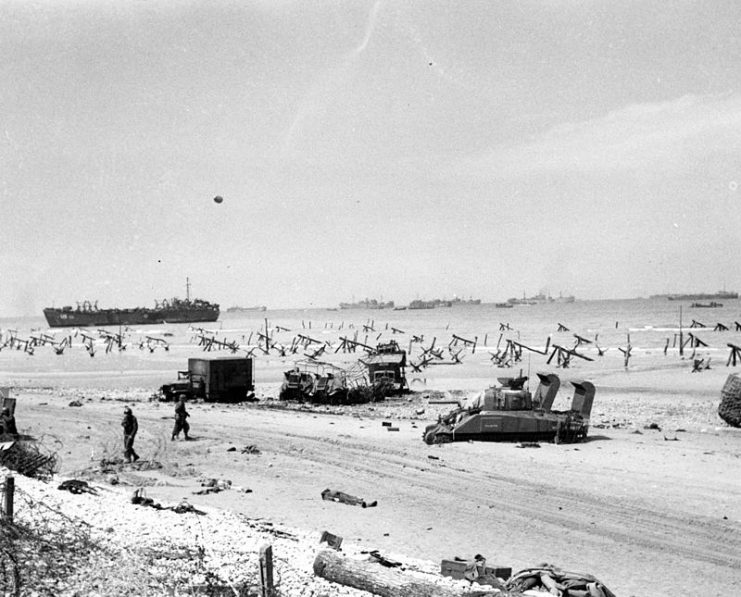
It was there, during the time he spent with Canadian and American soldiers, that French heard all those words. Weeks before D-Day, the soldiers were discussing it–using the codenames. French took note of the words and decided to put them into crosswords.
Read another story from us: Operation Tiger – Forgotten WWII Exercise That Turned Into A Catastrophe
He later recounted,
Soon after D-Day, Dawe sent for me and asked me point blank where I had gotten those words from. I told him all I knew. Then he asked to see my notebooks. When he opened them, Dawe was horrified. Dawe screamed at me and said that my books must be burnt at once. I have never seen anyone so angry in my life. I was really scared, terrified of imprisonment. Mr. Dawe gave me a stern lecture about national security and made me swear that I would tell no one about the matter. He was very insistent on total secrecy. He made me swear on the Bible I would tell no one about it. I have kept to that oath until now.
So, at the end, it turned out that there was an explanation for the coincidence: Loose lips were indeed to blame. It was a lucky circumstance that there was no enemy spy to listen.
